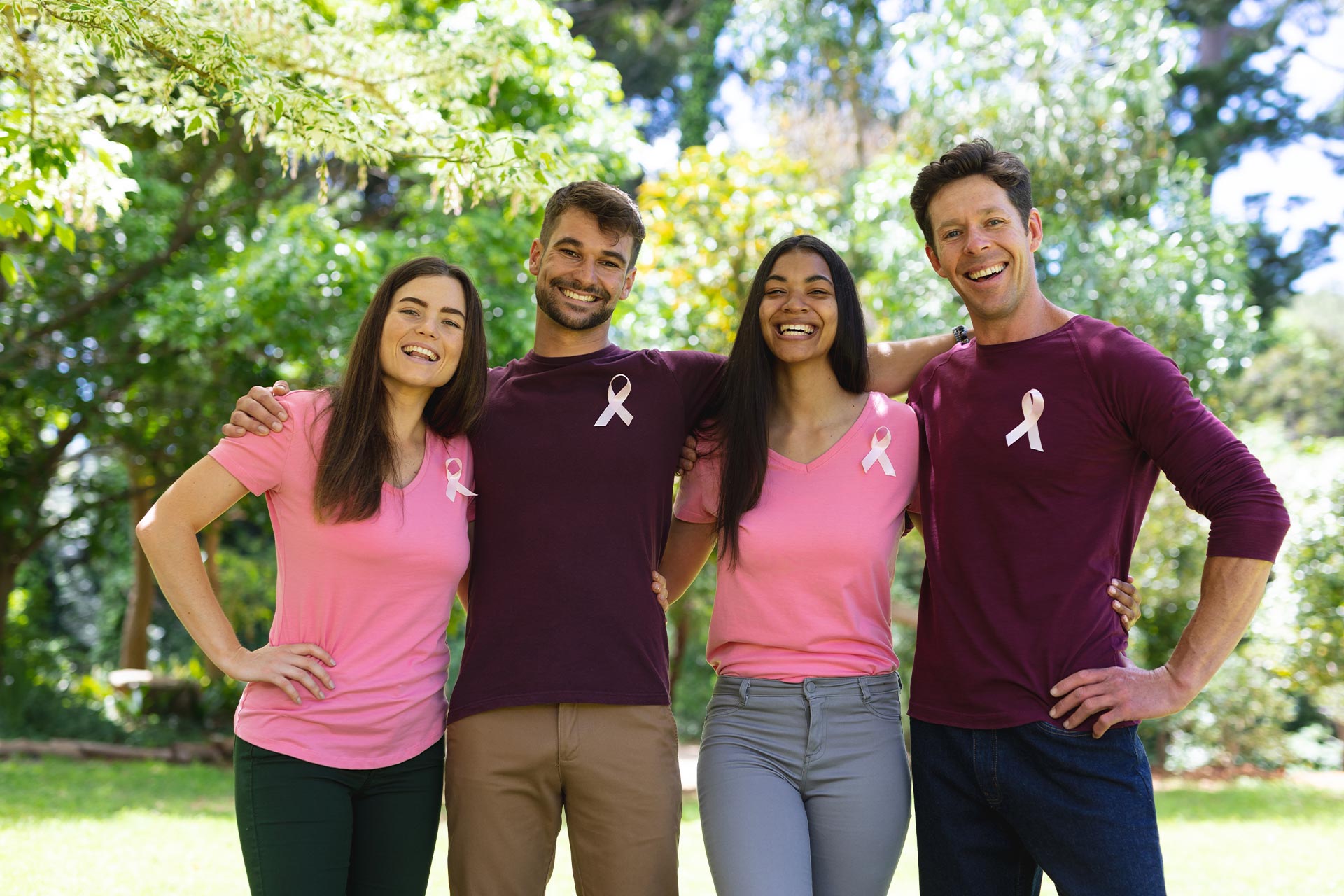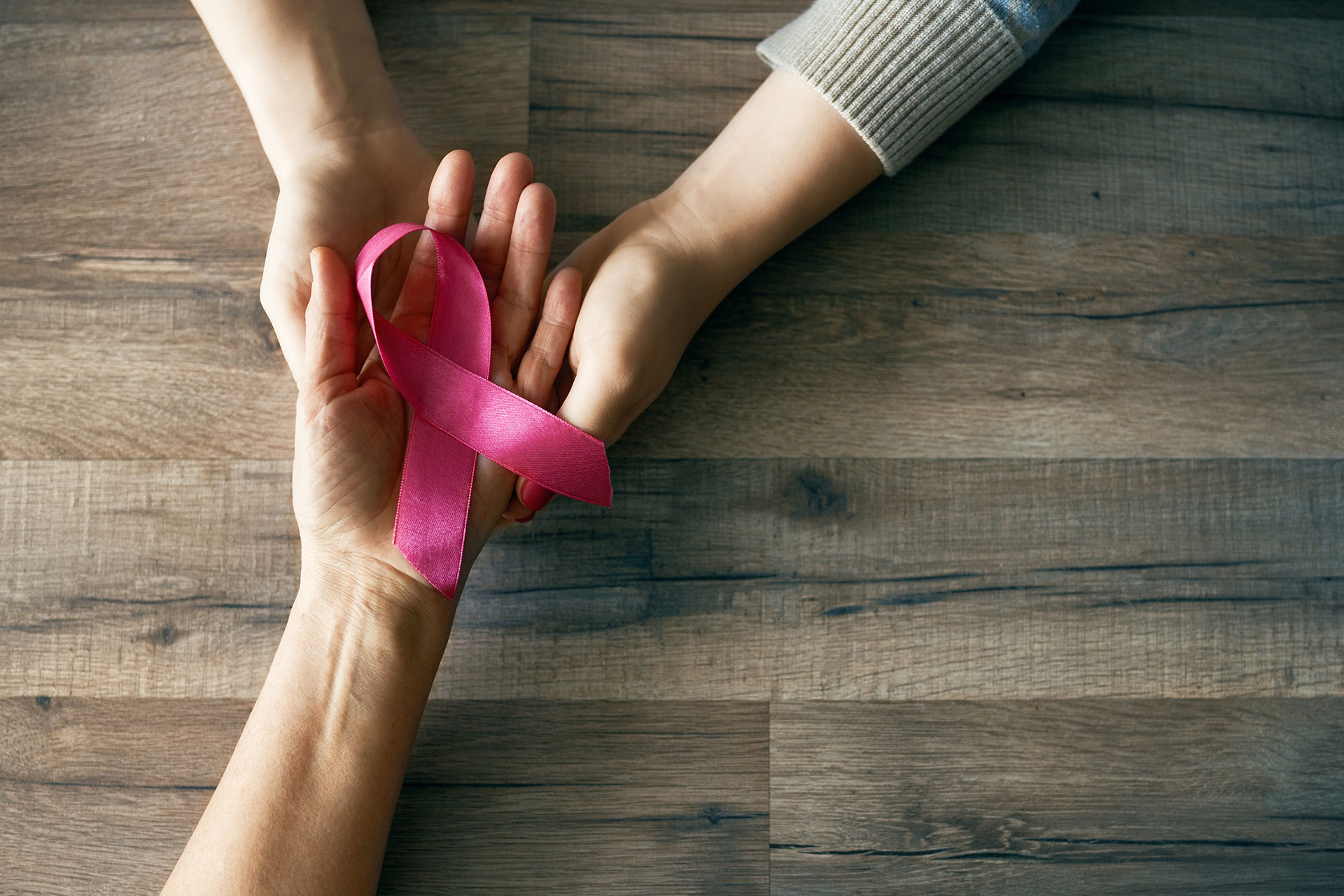October is Breast Cancer Awareness Month, a unique chance to focus on promoting awareness, highlighting early detection, and supporting the many affected by breast cancer.
What is Breast Cancer?
It is a disease where malignant cells develop in the breast tissue, leading to uncontrolled growth that can spread to other body parts. Most breast cancer cases begin in the milk ducts or lobules, and it is reported to be one of the most prevalent cancers affecting women worldwide.
In 2024, breast cancer remains a significant concern, with an estimated 298,000 new invasive cases expected to be diagnosed in women in the U.S., along with 56,000 reports of non-invasive cases. While breast cancer predominantly affects women, approximately 2,850 men will also be diagnosed with the disease this year.
As we continue to advance our understanding of breast cancer, there is good news: 67% of the cases are diagnosed before it has spread, where the five-year survival rate is an encouraging 99%. Despite this, it is estimated that 43,700 women and 550 men will die from breast cancer in the U.S. in 2024.
Breast cancer is the second most common cancer in American women, following lung cancer, and it accounts for about 30% of all new cancer diagnoses in women. There are over 3.9 million breast cancer survivors in the U.S. alone; they represent living proof of improved treatments and early detection efforts.
Early Detection and Prevention
While breast cancer cannot be entirely prevented, taking proactive steps toward early detection significantly improves treatment outcomes. Women have to be motivated to perform regular breast self-exams and schedule mammograms based on their age and risk factors.
The American Cancer Society (ACS) recommends that women aged 40-44 begin annual mammograms. Regular screening is crucial for detecting breast cancer early when treatment is most effective.
In addition, it is crucial to be aware of potential risk factors and take steps toward preventing breast cancer. Risk factors like alcohol consumption, overweight, and hormone imbalances can be managed through lifestyle choices.

Risk Factors and Causes
The exact causes of breast cancer are still unclear; the disease is believed to result from genetic mutations or damage to a cell’s DNA. Having certain risk factors does not guarantee that a woman will develop breast cancer, but they can increase the likelihood.
Some risk factors, such as family history and genetic mutations (like BRCA1 and BRCA2), cannot be changed. However, switching to healthier habits such as regular exercise, a balanced diet, and avoiding smoking can help prevent breast cancer or lower overall cancer risk.
About 1 in 8 women in the U.S. will have breast cancer in their lifetime. It is crucial to recognize that men are also at risk, though the incidence is lower.
Signs and Symptoms
The warning signs of breast cancer vary, but common symptoms include:
If you notice any of these changes, seeing a healthcare provider promptly for evaluation is paramount. Early diagnosis and treatment are vital to better outcomes.
Treatment Options
Breast cancer treatment has advanced significantly in recent years, with options tailored to the type and stage of the cancer. Common treatments include:
A healthcare team usually combines several of these treatments to create a comprehensive and personalized treatment plan.
Home Care for Breast Cancer Treatment
For those undergoing breast cancer treatment, home care offers tailored support in a comfortable environment. Skilled nurses and licensed therapists can assist patients with medication management, rehabilitation, and emotional support, helping to alleviate the stress of treatment.
Home care services might include nursing care and personalized exercise programs to improve mobility and well-being. These services ensure that patients receive the highest standard of care while remaining in the comfort of their own homes.

Join Breast Cancer Awareness Efforts in October
The 2024 theme, “No One Should Face Breast Cancer Alone,” emphasizes the importance of community and collective support in the fight against breast cancer. This year, the focus is on reducing disparities in breast cancer outcomes, particularly in underserved communities where access to quality care may be limited.
There are many ways you can get involved in breast cancer awareness month:
Looking Forward
The fight against breast cancer is a constant reminder that the job is not done yet. Research and support are essential to ensuring that no one faces breast cancer alone.
As we continue to work toward preventing breast cancer, promoting early detection, and advancing treatment options, we must all come together to guarantee that every patient has access to the care and support they need. Whether through donations, education, or volunteering, everyone can contribute to the fight against breast cancer.
Let this October be a time to reflect, take action, and honor the millions of people affected by breast cancer, those currently fighting, the survivors, and the loved ones we have lost.
Call Signature 24/7 at 1 (800) 277-8291 for excellence in skilled and compassionate home health care.

Your Complete Home Health Care Solution.
ALWAYS ON CALL
| Monday – Sunday | 24 / 7 |
1 (800) 277-8291 (option 1)
COUNTIES SERVED
OUR VALUES
TESTIMONIALS

I love all of my home health people.

All Signature staff as well as therapy were very helpful.

Their services have always been great.

I really love my physical therapist. Gary has helped me so much.

This has been one of the best agencies. Very caring nurses.

I’ve had a really good physical therapist and really nice nurses.

I have had excellent care & would recommended them to anyone.

Gary Dixon is the very best physical therapist in Baytown and Houston Area.

